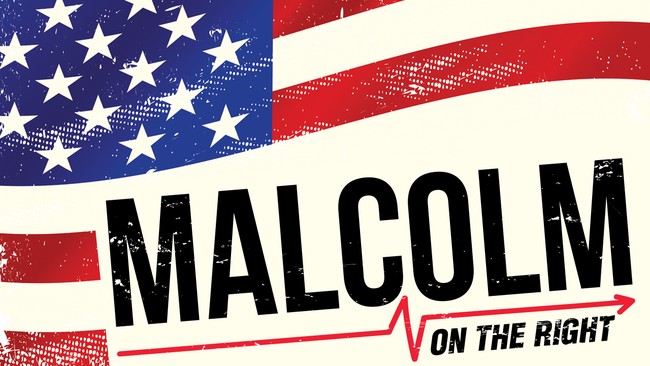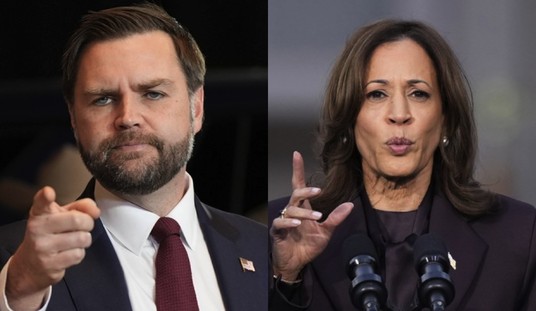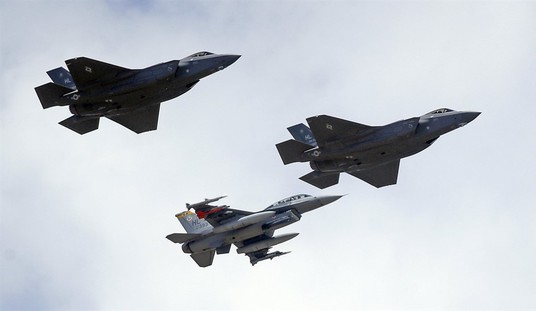Time magazine’s selection of Donald Trump as its 2024 "Person of the Year" is accurate, smart, extremely obvious, and of passing import.
Before biological men were allowed in women’s locker rooms and bathrooms, the magazine’s annual "Man of the Year" designation was for men only because only men mattered to male editors and made the news that was important to mostly male readers.
The selection, however, has long meant different things to different people. To the chronically angry Left this year, the Trump issue is an outrageous recognition that also confirms its ridiculous comparison of Trump to Adolf Hitler, who was “Man of the Year" back in 1937 when the title was a masculine thing.
To the Right, the selection is a justified recognition by despised media of the most amazing politician of modern times. There can be no doubt for them. And Trump doesn’t mind either.
When Time Magazine was founded back in 1923, a weekly newsmagazine was a revolutionary concept. Radio was brand new. Television was as far-fetched as Dick Tracy’s two-way radio watch that presaged the cellphone.
Time magazine was unique and fun. Its team-written articles were concise summaries with fresh details strung out in sentences written in a backward reading style like this that reeled the mind. Readers felt they were inside secret leadership summits, learning what the room and curtains looked like and what the famous folks had for lunch.
Not so much about what actually happened. But we already knew that from daily newspapers.
The annual “Man of the Year” selection did not mean the person was of lasting import. Otherwise, everybody would remember F.W. de Klerk (1993), Corazon Aquino (1986), Soong Mei-ling (1937), or Kamala Harris (2020).
It was supposed to be just about the person with the most impact on the year’s news.
"Man of the Year" actually began in 1927 (Charles Lindbergh) as a marketing gimmick for the busy holiday season when consumers focused on buying things other than magazines. Editors kept the selection a secret so everyone would want to know who it was. They still do.
This is Trump’s second selection as "Person of the Year" (2016), which matches him with Winston Churchill (1940, 1949), Dwight Eisenhower (1944, 1959), and Josef Stalin (1939, 1942). Time’s latest owner, tech billionaire Marc Benioff, is a Trump fan and arranged an interview.
Trump not only likes media attention, he’s very good at causing and using it. For instance, gaining widespread Sunday and Monday coverage for his opening presidential agenda through an exclusive interview with NBC, his former TV home for “The Apprentice:”
The complete program:
I’m looking to make our country successful. Retribution will be through our success.
Then, opening the New York Stock Exchange to loud cheers from the trading floor of “USA! USA!”
Last week, in a carefully-phrased online statement without promises, Trump said, “The Republican Party will use its best efforts to eliminate Daylight Saving Time.”
Trump says his inaugural address will be a message of unity and “Peace Through Strength.” Media honeymoons for Republican presidents tend to be shorter than for Democrats.
To contrast himself with the increasingly invisible No. 46, the 47th president will want to create the appearance of an immediate flurry of activity – even a blizzard — starting on Jan. 20.
Day One will have executive orders on the border, illegal immigrants, and energy development, including undoing restrictions levied by Joe Biden, the Corvette owner who wants everyone else to drive an EV.
However, many of the new president’s challenges are not subject to solutions by signature. There’s Russia’s ongoing war on Ukraine, which Vladimir Putin delayed until after Biden’s arrival in 2021.

North Korea’s Kim Jung-un is threatening aggression again. Iran remains a developing nuclear threat and terrorist troublemaker.
The Washington Times reported last week that satellite images confirmed Iran recently launched a former container ship modified to become an aircraft carrier for launching and recovering drones. The "Shahid Bagheri" is now on a shakedown cruise in the Persian Gulf.
Such a mobile platform would be a useful weapon in the terrorism-export business. Of course, such a dangerous platform would also be a very large target.
Iran has been seriously weakened regionally by Israel’s determined destruction of its surrogate terrorist forces, Hezbollah and Hamas.
Under the leadership of Benjamin Netanyahu, a Trump ally, Israel is also pounding any equipment remnants of Syria’s defeated military to snuff out any short-term armed ambitions of a new Syria.
Israel’s aggressive, proactive self-defense, in turn, fractured the military foundation of Bashar al-Assad’s Syrian dictatorship. Like millions of Syrians who fled his tyranny, torture, and resulting civil war, Assad is now a refugee himself, enjoying a Moscow winter.
And now a motley though lethal coalition of suddenly successful rebels attempts to assemble a government in Damascus after five decades of Assad family rule and 13 years of civil war. Its leadership has said encouraging things about restoring and rebuilding a free and peaceful Syria.
History, however, suggests otherwise. Enduring revolutions usually involve one unitary rebel force. See Cuba. A few years after defeating a common enemy, coalitions of revolutionaries tend to crumble into feuding factions and war once more.
Despite Trump’s warnings, in the spring of 2017, Assad did use chemical weapons again on civilians. Unlike Barack Obama, Trump immediately sent 59 Tomahawk missiles to destroy the Shayrat Airbase that launched the attack.
He also ordered the removal of 900 special forces protecting oil fields in Syria and training the Syrian Free Army, consisting largely of Kurds. Then-Defense Secretary James Mattis resigned over abandoning the Kurds.
Pentagon officials convinced the president to reverse that decision as those forces are also preventing a lethal ISIS resurgence. US troops remain, although NATO ally Turkey objects.
More recently, Trump has said Syria is “not our fight,” which fits with his long-held and popular stance of non-involvement in foreign conflicts. But protecting U.S. interests in a volatile region with terrorist forces training to hit the homeland need not always involve combat.
Trump has vowed that in 24 hours, he could end the nearly three-year-old Ukraine war that appears stalemated. He met in Paris last week with Ukraine’s Volodymyr Zelensky and quoted that president as wanting peace.
An obvious defeat for Putin would threaten his survival. While few in the West would miss him, the absence of one strong Russian leader could result in regional fractures, each with a different ambitious leader and each with an arsenal of nuclear weapons.
As you may have noticed, Trump is a transactional leader, which worked well for him in the real estate business. One conceivable peace transaction that would halt the killing while blocking Russia would be to end the war in place.
Russia would keep its captured portions of eastern Ukraine and possibly Crimea going back to 2014.
Then NATO would grant Ukraine immediate membership with its mutual defense guarantees to block any future Putin annexations there.
Ending Europe’s largest armed conflict since World War II might seem to qualify Donald Trump then for the Nobel Peace Prize.
Only three U.S. presidents have received that prestigious international honor in history. Theodore Roosevelt negotiated an end to the Russo-Japanese war in 1905. Jimmy Carter’s long peacekeeping efforts were honored in 2002.
The most recent winner was Barack Obama. The Democrat got his just a few months after taking office in 2009 after his controversial international apology tour.
Then, two years later, Obama didn‘t end a war. He helped start one, the armed overthrow of Libya’s Moammar Gaddafi.
The U.S. and others had promised to leave that strongman alone if he turned over his nuclear-weapons program, which he did. But that was 2001.
In 2011, they changed their mind. The West double-crossed him and attacked. Gaddafi was eventually caught hiding in a hometown culvert and killed by a mob.
Obama's Secretary of State, Hillary Clinton, celebrated:
We came. We saw. He died.
That coup by Obama and European powers was what transformed Libya into today’s lawless state and terrorist training ground.
So, still no real peace yet for Obama's Nobel Peace Prize.














